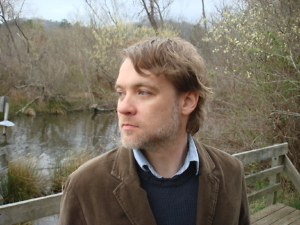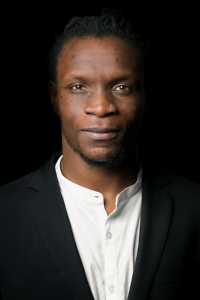On April 11 and 12, East Tennessee State University will hold its second annual spring literary festival, hosting a slate of workshops, readings, and genre-focused craft presentations. Jesse Graves, ETSU’s poet-in-resident and the festival’s organizer, likens this year’s roster of writers to “drawing the golden ticket.”

“For someone who loves books and writing,” he says, “spending a couple of days with these writers is even better than a tour of a chocolate factory.”
The aim of the spring festival is to give ETSU students and the Johnson City community a glimpse into the work of a variety of poets and writers. This year’s featured authors offer a mixture of perspectives and literary voices, both local and far-flung. Graves says his department has tried “to bring in great writers who are also great teachers, who can offer workshops and presentations where the attendees can generate some new writing or reading habits of their own.”
The festival’s scheduled offerings include a fiction workshop by Robert Gipe and a poetry workshop by Darnell Arnoult, both award-winning Appalachian writers, and a nonfiction workshop with Clarksville’s Amy Wright. A panel discussion will also take place between ETSU English professor Daniel Westover and poet William Wright on the work of Gerard Manley Hopkins. All festival events, which are free and open to the public, will take place in ETSU’s Reece Museum, where the literary atmosphere will get a boost from the museum’s current exhibit of Salvador Dali’s illustrations for Dante’s Divine Comedy. The festival will culminate on Wednesday evening, when keynote speaker Ishion Hutchinson will read from his work.
Hutchinson recently won the National Book Critics Circle Award for his second poetry collection, House of Lords and Commons. Currently a professor at Cornell University, Hutchinson has been called “Jamaica’s best new poet” by The New York Times and hailed as the clearest inheritor of Caribbean poetry’s legacy after the recent death of Derek Wolcott. House of Lords and Commons illuminates a vibrant picture of this legacy, giving voice to a range of Jamaican characters and evoking a personal, honest reckoning with both physical and literary landscapes.

A tension persists within Hutchinson’s poems. In them the speaker’s first impulse is to flee from the known, well-worn paths of home, sometimes toward real-world travels and sometimes toward the European literary canon. But the second impulse is to stay, spurred by moments when the bonds of heritage are pulled taut, flattening the wanderlust. Operating between these opposing forces, Hutchinson creates a power from this fraught space: “History is dismantled music; slant / bleak on gravel. One amasses silence, / another chastises silence with nettles, / stinging ferns. I oscillate in their jaws.”
This tension produces what The New Yorker’s Dan Chiasson has called a poetry “of ambivalent homage.” The poems swing wildly between erudite references (the Greeks, Heidegger, Keats) and big-hearted, exuberant sentiment. This is a poet who keeps his eye on the larger arc of history—“that rusty anchor holding no ship in the bay”—even when the poems themselves seem to emerge from a closer-held, more exultant source:
Everything ripens in the road—
a mouth shines the mic, pomade-melting
words, a dark-glassed savant imploding
through his tight collar, words, words, yes!
A flurry of bell beats; they hammer rings
of pot covers and scarlet banners
towards the sky; electric wires stretch
three vicious scrawls into the day.
Such lines create the impression that Hutchinson’s voice has indeed ripened on the road, one full of switchbacks, detours, sudden clearings, and meanders in the direction of the sea.
Graves, who will conduct an on-stage interview with Hutchinson before his reading, notes that “in addition to his dynamic style, Hutchinson is above all a poet of place.” In this sense, the Jamaican poet is an ideal choice for a festival dedicated to challenging Appalachian students to embrace broader visions of literary possibility. Hearing Hutchinson read, says Graves, will “give them a chance to experience the largeness of the world.”

Emily Choate holds an M.F.A. from Sarah Lawrence College. Her fiction has been published in The Florida Review, Tupelo Quarterly, and The Double Dealer, and her nonfiction has appeared in Yemassee, Late Night Library, and elsewhere. She lives in Nashville, where she’s working on a novel.





